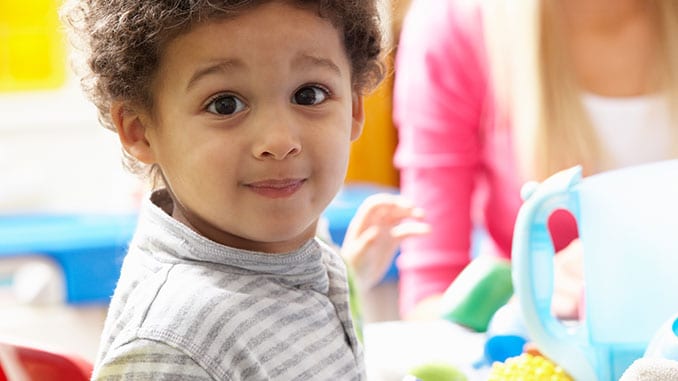
A Parent’s Guide to Kindergarten Readiness
Published: August 31, 2019
It’s the next step after toddlerhood. Maybe a mother’s day out or preschool, but going to kindergarten is a big step. How do you know if your child is ready?
Parents often find it hard to know if a child is ready for kindergarten or even how best to prepare them.
“Kindergarten readiness is not just about learning your letters, numbers and shapes through flashcards,” says Cora Causey, Ph.D., instructor in the University of Alabama at Birmingham School of Education. “There is so much more that parents and early childhood educators can do. We need to look at social-emotional, cognitive and language development in order to best prepare children for interaction in the classroom.”
Each child develops differently, but there are certain aspects of development that a parent can help progress. Causey encourages parents to meet children where they are in their development.
Social-emotional development: Executive function, relationship development, coping and self-regulation play important roles in a child’s overall development, but most importantly in their social-emotional development so that they can handle a collaborative environment, like kindergarten. This includes sharing, taking turns, and learning when to speak and listen, and to do this respectfully.
Coping and self-regulation can be tough for children at this age. Acting out situations can help a child learn to deal with a situation. This can be taught through role play, playing with figurines or even through books.
At home, parents and other family members should model the behaviors of making friends, sharing or following expectations. Children will learn from the models and be better prepared for situations that arise at school.
Cognitive development: How a child learns, connects with experiences, and uses symbols and images relates directly to their cognitive development. Causey suggests enhancing cognitive development through literacy opportunities and mathematical language to prepare children for the kindergarten classroom.
Reading aloud to your children is the best way to cultivate cognitive development, she says. Ask your children questions as you read books related to the content, illustrations or even the child’s feelings.
Early math experiences help with a child’s cognitive development. Causey recommends using household items to improve cognition. For example, when a child is in a sandbox and pours sand in two cups, ask which one has more.
Language development: Children should have the opportunity to listen, speak, read and write as they develop. This helps children further their language development orally. Everyday conversations help children understand language.
Easy tips for listening and speaking with your child include:
- Read a book, but stop to look at the pictures and talk about them.
- When traveling, ask questions about what the child sees; connect it with additional questions, like colors, smells, noises, etc.
- In the grocery store, take time to look at the produce and ask questions about taste, texture, color and other noticeable features.
